Table of Contents
ToggleSo, you want to lose weight, but you’re tired of jumping from one diet to another, right? I get it. You’ve probably tried it all, from calorie-counting apps to juice cleanses, only to find yourself back where you started. But what if I told you there’s a better way—one that doesn’t involve depriving yourself or giving up your favorite foods? Instead, it’s about embracing the Mediterranean Lifestyle and transforming your habits in a way that feels natural and sustainable.
Welcome to the Mediterranean lifestyle makeover!
As an experienced dietitian, I’ve seen firsthand how powerful this way of eating and living can be, especially when it comes to long-term weight loss. Let’s dive into how you can make it work for you.
What is the Mediterranean Diet?
Before we talk habits, let’s clear up what the Mediterranean diet actually is. It’s not some restrictive, hard-to-follow diet plan. Instead, it’s an approach to eating that’s been followed by people living in countries bordering the Mediterranean Sea (think Greece, Italy, Spain… etc) for centuries.
The Mediterranean Lifestyle is much more than a diet; it’s a way of life.
A Focus on Whole, Natural Foods
At its core, the Mediterranean diet emphasises whole, minimally processed foods. Think fresh vegetables, fruits, whole grains, legumes, nuts, seeds, fish, and healthy fats like olive oil. And yes, there’s room for a glass of wine here and there!
One of my favorite elements of this diet is that it doesn’t demonise any food group. You don’t have to give up carbs or fats—instead, it’s about choosing the right kinds. For example, the carbs in this diet come from whole grains and legumes, not refined sugars and white bread. And fats? Bring on the olive oil! Healthy, monounsaturated fats are key here
Why It's Not Just a Diet—It's a Lifestyle?
This way of eating isn’t about short-term weight loss but a sustainable way to live. People in Mediterranean regions don’t sit around measuring their calories or carbs; they eat in a way that naturally supports a healthy weight. This Mediterranean Lifestyle also embraces things like social meals, regular physical activity, and mindful eating—all of which contribute to its long-term success.
And guess what? Studies show that the Mediterranean diet isn’t just good for weight loss. It can lower your risk of heart disease, reduce inflammation, improve brain function, and even increase your lifespan.1 What’s not to love?
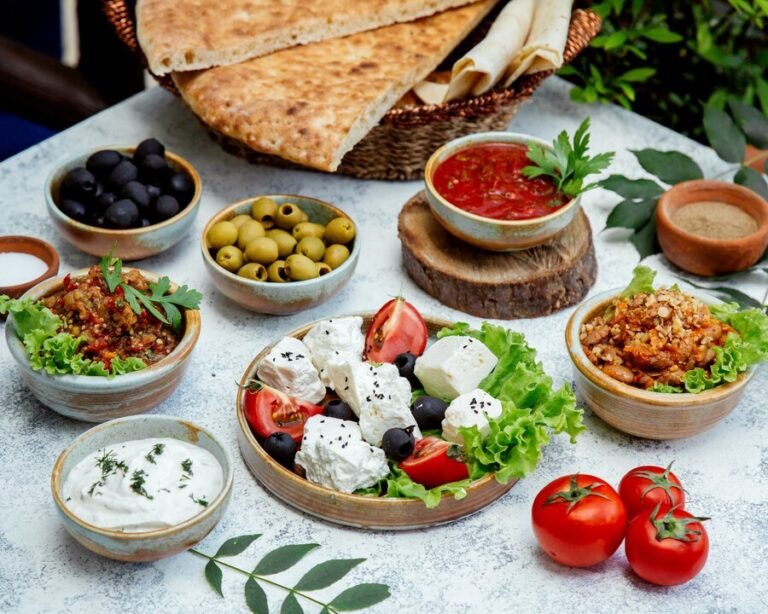
The Key Components of a Mediterranean Lifestyle
Now that you know what the Mediterranean diet is, let’s talk about the bigger picture: the Mediterranean lifestyle. Food is just one part of it. The other part is how you live, move, and interact with others. When you combine these aspects, that’s when the magic happens.
Eating the Mediterranean Way
So, how can you start eating more like you’re living on a sunny Greek island? Here are some quick tips to embrace the Mediterranean Lifestyle:
Eat more plants
Load up your plate with vegetables, fruits, and legumes. Not only are these foods packed with nutrients, but they also keep you feeling full and satisfied.
Make fish your protein of choice
Aim to have fish a couple of times a week. Salmon, mackerel, and sardines are great choices.
Go nuts (and seeds)
Snack on almonds or sprinkle seeds over your salads. These healthy fats are great for keeping hunger at bay.
Choose whole grains
Swap refined grains for whole grains like quinoa, farro, or bulgur. These are packed with fiber, which keeps you full longer.
Use olive oil generously
Extra virgin olive oil is a staple in Mediterranean cooking. It’s heart-healthy and adds a wonderful flavor to everything from salads to sautéed veggies.
Move Like the Mediterraneans
Here’s where the Mediterranean lifestyle differs from most fad diets—it’s not just about what you eat, but how you move. The people in these regions don’t necessarily hit the gym every day. Instead, they integrate movement into their daily lives. They walk, garden, bike, and dance—things that don’t feel like a workout but get their bodies moving.
You don’t need to overthink this. Try to walk more often—maybe after dinner or during a lunch break. Take the stairs instead of the elevator. Park farther away from your destination. You don’t need a gym membership to move more!

Habit Building for Sustainable Weight Loss
Here’s where the real work begins: building habits. If you want to lose weight and keep it off, it’s all about creating sustainable habits—not trying to overhaul your life overnight.
Why Fad Diets Fail
We’ve all been there. You start a new diet, cut out a bunch of foods, and maybe you lose a few pounds quickly. But what happens a month or two later? The weight comes back. That’s because extreme diets aren’t sustainable. They set you up to fail by creating unrealistic expectations. You can only survive on boiled chicken and salad for so long before you cave and revert to old habits.
The Power of Small Changes
The Mediterranean lifestyle works because it’s about gradual, small changes. You’re not going to wake up tomorrow and become a Mediterranean foodie or suddenly fall in love with daily walks—but you can start small.
Start by picking one or two changes to make this week. Maybe swap butter for olive oil in your cooking. Or add an extra serving of vegetables to your meals. Once those habits feel natural, stack on another. This gradual shift makes a world of difference
Practical Steps for a Mediterranean Makeover
Ready to get started? Let’s walk through some practical ways you can start your Mediterranean Lifestyle makeover today.
Revamp Your Kitchen

It’s hard to follow any diet if your kitchen isn’t stocked with the right foods. So, make your kitchen Mediterranean-friendly:
Stock up on olive oil
It’s going to be your new go-to cooking fat.
Keep whole grains handy
Quinoa, bulgur, and whole-wheat pasta are versatile staples.
Buy plenty of fresh produce
Load your cart with vegetables like tomatoes, zucchini, spinach, and peppers.
Get some fish
Salmon, sardines, and mackerel are excellent sources of omega-3 fatty acids.
Having these basics on hand makes it easy to throw together a Mediterranean-inspired meal without much thought.
Meal Planning & Easy Recipes
One of the biggest obstacles to eating well is time. But the Mediterranean diet doesn’t require complex or time-consuming recipes. Here’s a simple meal idea:
Greek yogurt with berries and a sprinkle of nuts/seeds

A Mediterranean salad with mixed greens, cucumber, tomatoes, olives, and a drizzle of olive oil.
Add a piece of grilled fish or chicken if you want

Grilled salmon with roasted vegetables and a side of quinoa
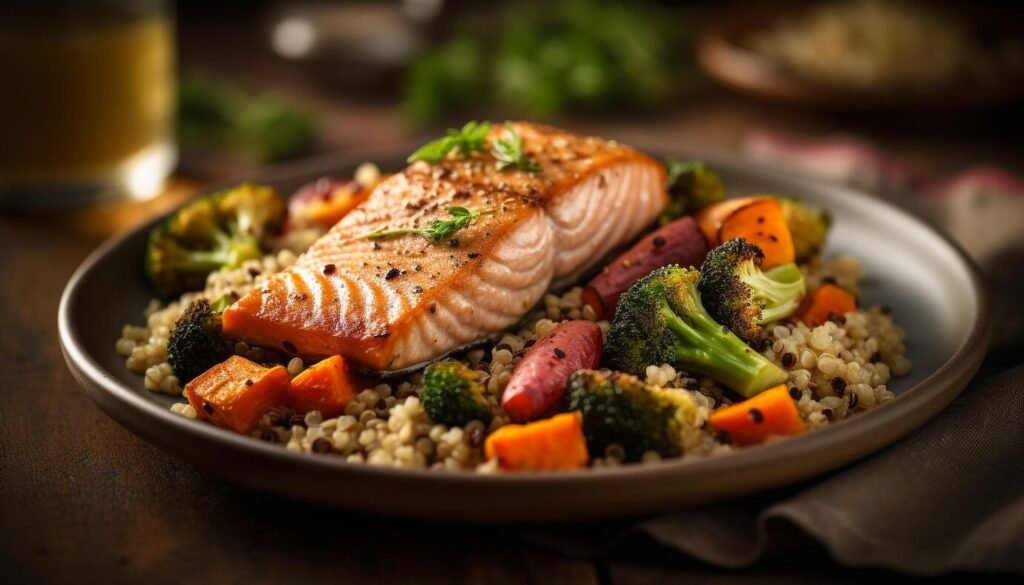
Make Movement Part of Your Routine
If you’re not used to moving regularly, it can feel daunting to add exercise to your day. But remember, the Mediterranean approach to movement isn’t about sweating it out in the gym for hours. It’s about moving in a way that feels natural and enjoyable.
Start by walking for 15 minutes a day. Maybe after dinner, take a stroll around the block. Or, if you’re watching TV, try doing some stretches during commercial breaks. Small steps add up, and soon enough, you’ll find it easier to make movement a regular part of your routine.
Long-Term Benefits Beyond Weight Loss
While weight loss is often the initial goal, the Mediterranean Lifestyle offers long-term health benefits that go far beyond shedding a few pounds.
Improved Heart Health
This diet is well-known for being heart-healthy. Studies have shown that following a Mediterranean diet can reduce your risk of cardiovascular disease. The focus on healthy fats like olive oil and fish, along with fiber-rich fruits and vegetables, keeps your heart in top shape.2
Better Mental Health
Did you know that the Mediterranean diet has also been linked to improved mental health? People who follow this way of eating have been found to have lower rates of depression and anxiety. A healthy gut and a healthy brain often go hand in hand.3
Increased Longevity
Finally, the Mediterranean diet is often associated with longevity. Many of the world’s longest-living populations live in Mediterranean regions. Their way of eating, combined with their active, socially connected lifestyles, contributes to their long, healthy lives.
Conclusion: A Journey to Wellness
The Mediterranean lifestyle isn’t about quick fixes or drastic changes. It’s about transforming your habits in a way that feels natural and sustainable. By focusing on whole foods, regular movement, and mindful eating, you can lose weight and keep it off—without feeling deprived or overwhelmed.
Remember, the goal isn’t to be perfect—it’s to make progress. Start small, stay consistent, and enjoy the journey. Your body—and mind—will thank you.
Your First Step
What’s one small change you can make today? Whether it’s swapping out a processed snack for some fruit and nuts or taking a short walk after dinner, start now. You’re already on your way to a healthier, happier you!

Nour is a registered dietitian, nutrition researcher, and founder of MedDietMindset. With a passion for evidence-based nutrition, she specializes in Mediterranean diet strategies, PCOS management, and sustainable weight loss. Nour is dedicated to transforming complex scientific research into clear, actionable guidance to support healthier, long-lasting lifestyle changes. Through her blog, she empowers readers to build habits that prioritize well-being, balance, and vitality.


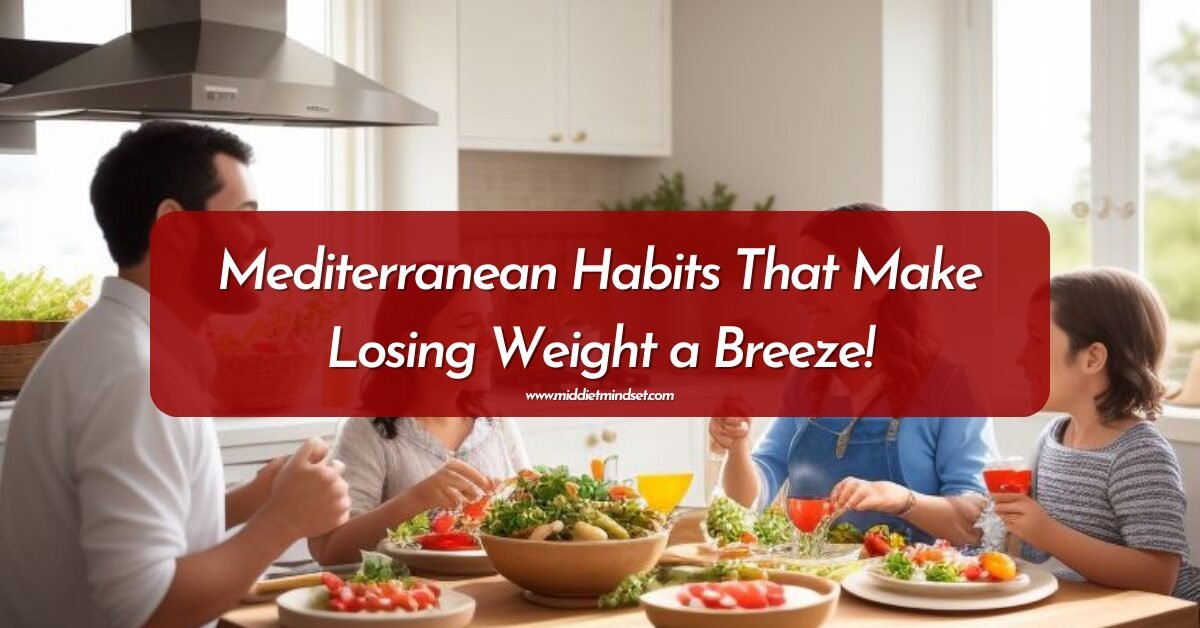
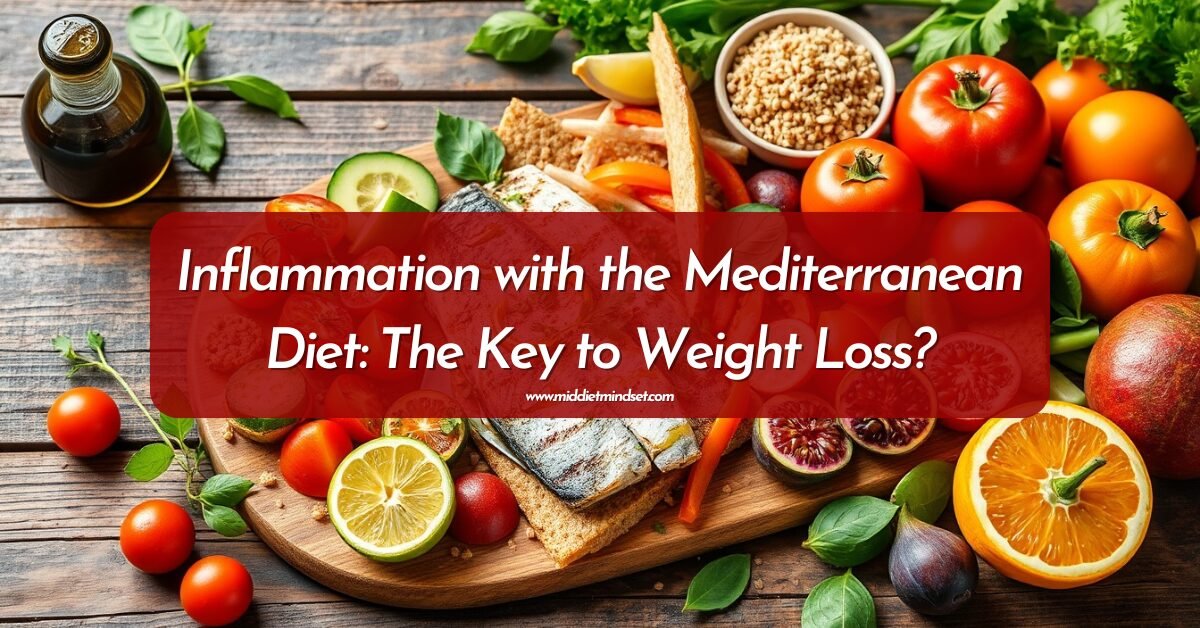

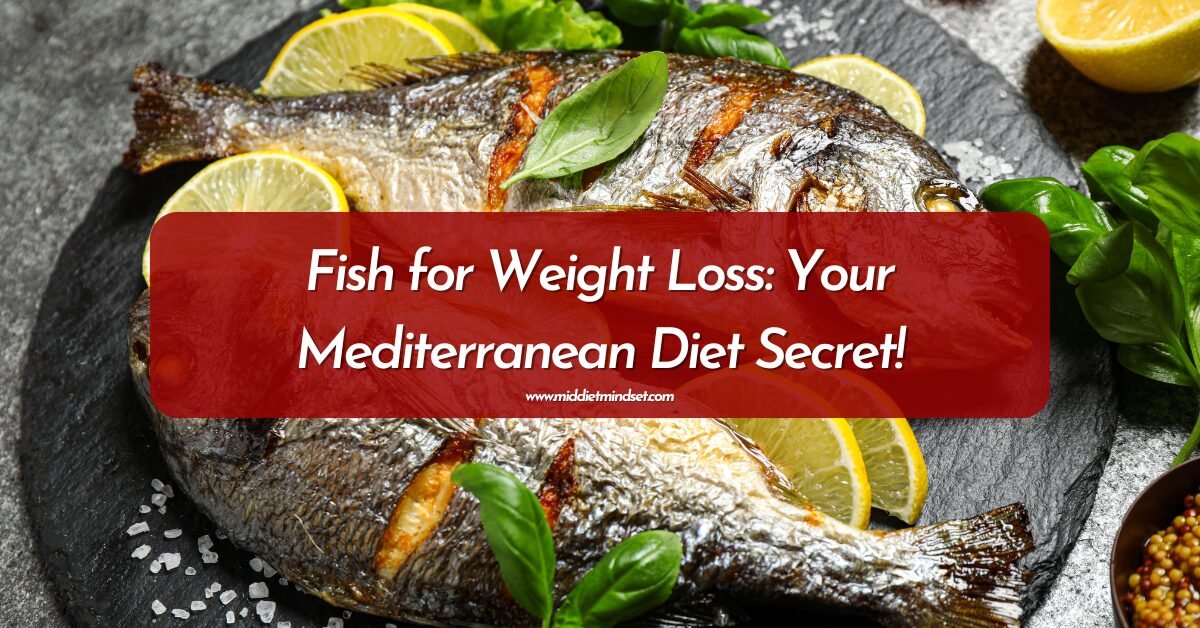
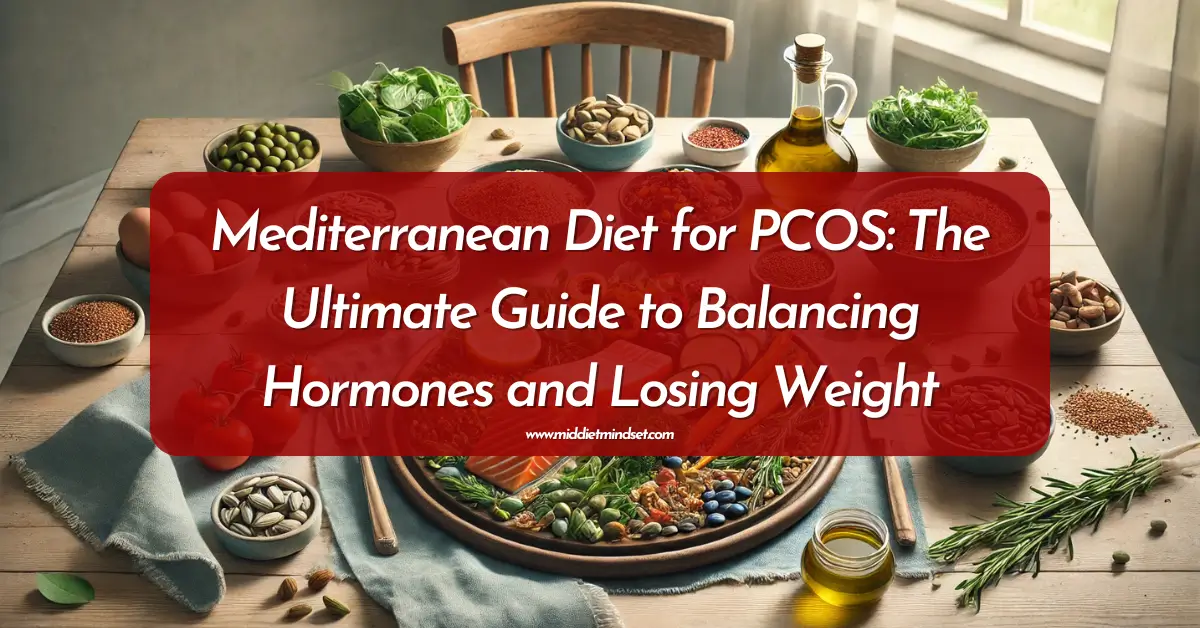

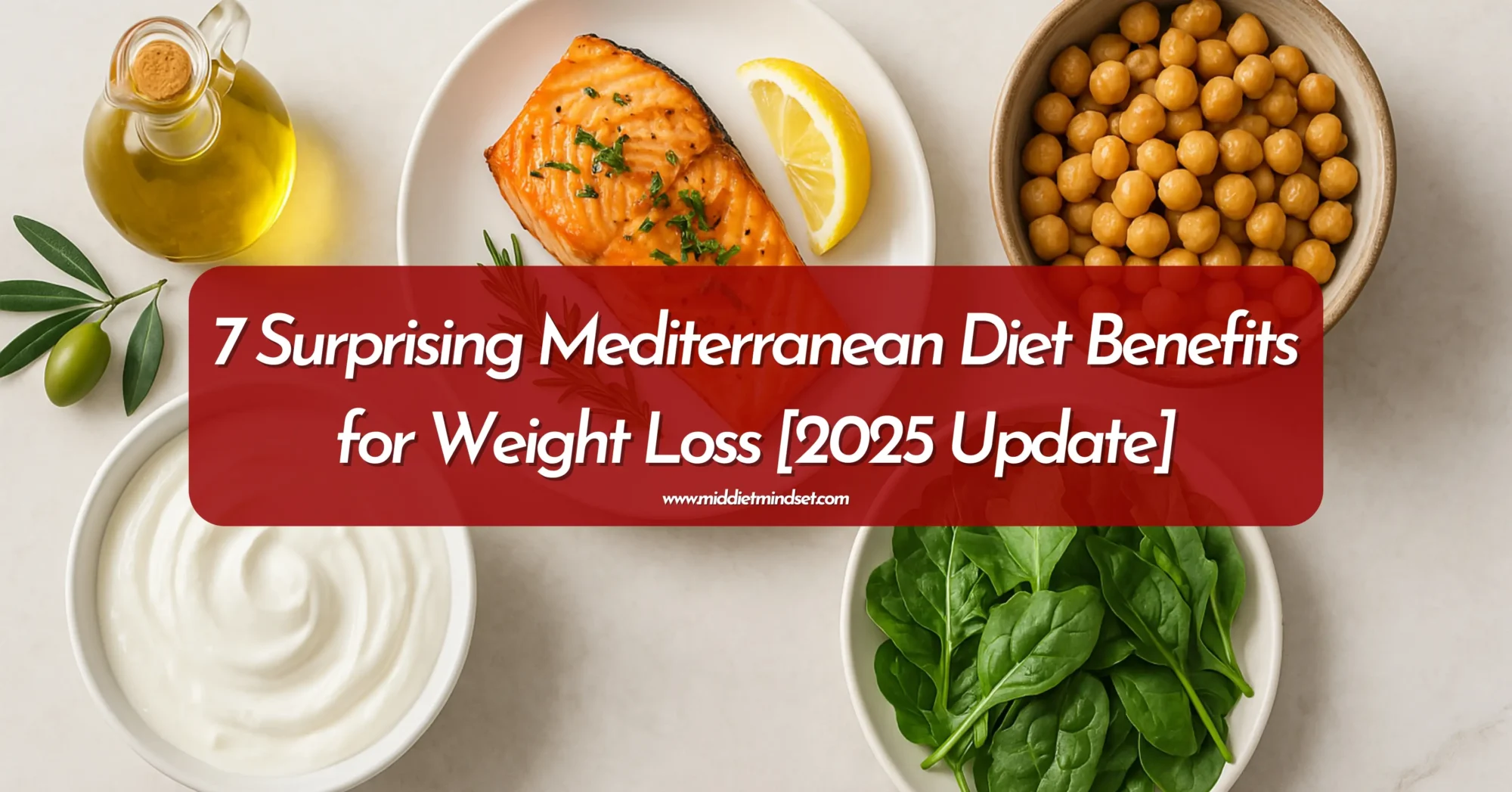
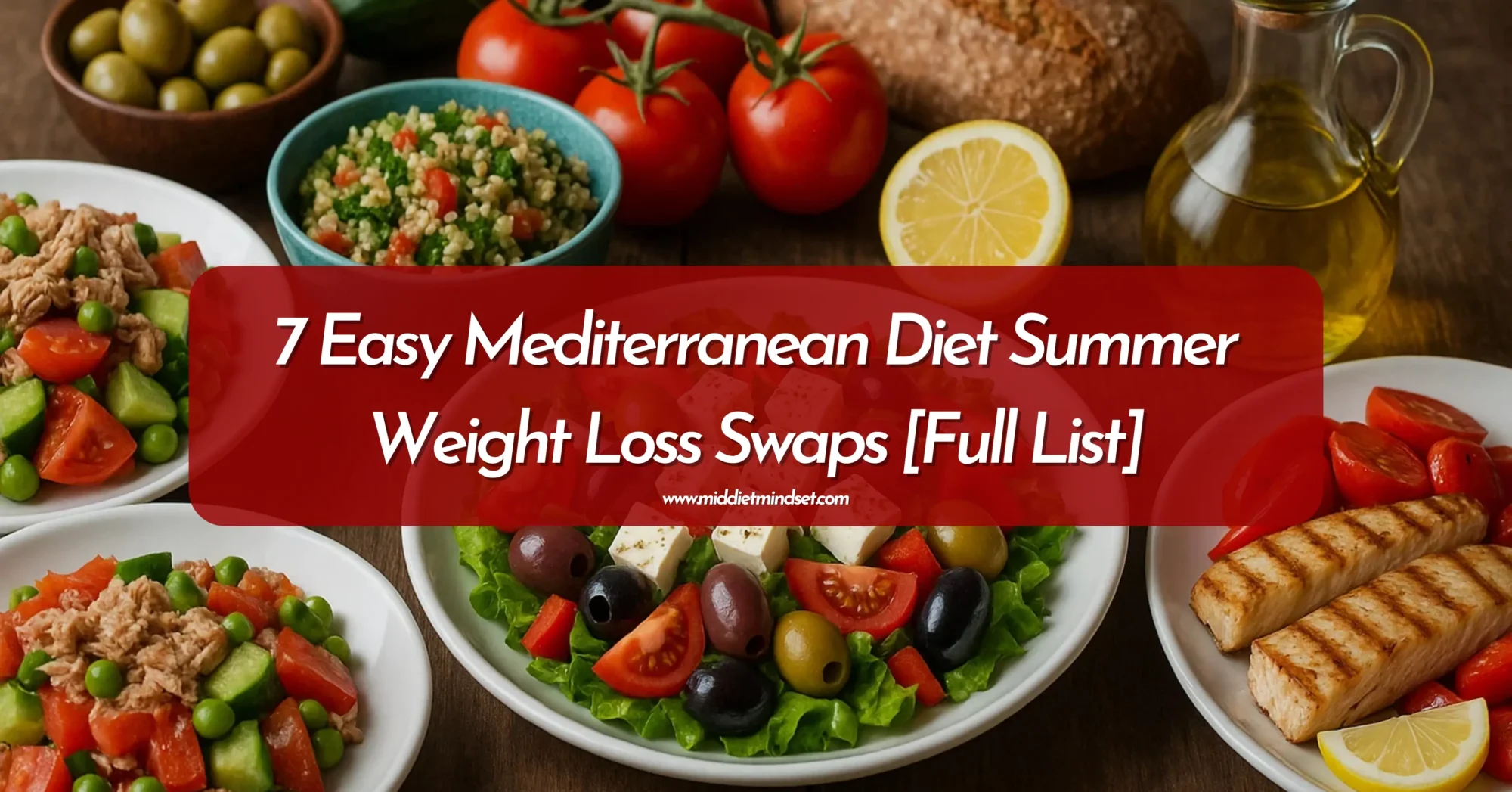
Pingback: Mediterranean Diet Recipes for Lunch or Dinner: 3 Recipes – MedDiet Mindset
Pingback: Inflammation with the Mediterranean Diet: The Key to Weight Loss? – MedDiet Mindset
Pingback: Intermittent Fasting vs. Mediterranean Diet: Which is Best for You? – MedDiet Mindset